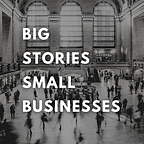We Love What You Build!
Interview with David Kokai, founder of WLWYB and MOCHUB based in Budapest, Hungary.
MOCHUB allows creators to share their work, while also offering a business model that enables them to make money with what they love. We help them build bigger, better and more MOCs by manually reviewing all incoming parts lists and providing support for commercially optimizing their projects.
WE LOVE WHAT YOU BUILD is the mothership for lego parts.
“Lego is an old hobby of mine, I’ve always been fascinated by various LEGO designs. And as a big fan, I knew there was a huge demand for the non-official LEGO designs, the so called MOCs (My Own Creation), which are built by semi-professional or amateur LEGO enthusiasts. However, individual creators cannot easily acquire the instructions, come up with packaging and necessary LEGO building blocks to share with the world. This niche hasn’t yet been overtaken by any big players either, so It didn’t take me long to see that there is a huge gap in the market.
Yet it wasn’t an easy task to build a meaningful marketplace for LEGO MOCs. There were numerous creative solutions we had to come up with. But the logistics is what I’m the most proud of. The logistics has become very straightforward in our execution. We are actively dealing with more than 30,000 SKUs. We have a couple of millions LEGO parts (individual pieces) in stock, and we handled more than 50 million LEGO parts last year. Currently, there are 10 people in our operation department. We maintain our margin of error at the level below 0.5%. To provide a perfect execution of the logistics in handling such a large amount of individual LEGO pieces, mini figures, it is critical for our operation team to be extremely disciplined and detail oriented.
We are actively dealing with more than 30,000 SKUs.
Until now it was possible to source the LEGO parts by the piece via BrickLink — a company owned by LEGO. But it is inconvenient for an amateur without any experience in sourcing LEGO bricks. Our team has been able to connect the builders who want to sell their MOCs but could not handle the logistics, and the customers who wanted to buy these unique Lego designs. We just put together our capabilities and after two and a half years we were able to launch the platform. Unlike other marketplaces our platform not only sells the designs, but also provides the kits. The customers receive a LEGO kit that has everything to build the chosen design: the LEGO parts, the instructions and all necessary supporting elements — everything in a generic package through our firm.
The key to our successful logistics execution is our proprietary software — virtual tool, that we have recently deployed. Another important fact is that we support a neurodiverse environment, meaning that some of our workers have autism. It took a lot of effort to build up an infrastructure that supports the needs of different people, but these creators and especially people living with autism have become extremely effective in this working environment: they follow very strict workflow processes. Overall, we currently have around 500 creative designers who sell on our platform, and we connect them to over 14,000 customers, who purchase our LEGO kits. We have customers from all over the world — US, Europe and Asia.
The last couple of months our demand in different parts of the world has been very volatile. Once the pandemic started, most of our non-American customers disappeared, but the American revenue or the American turnover skyrocketed. Two months after that, the American traffic returned back to normal, while lots of orders from European resumed.
Right now, we are serving only the hardcore LEGO fans, and our short term goal is to widen our customer base. To increase our audience, we plan to release three new projects later this year that aim to draw the attention of variety of LEGO fans. In addition to this, we recently increased our operations team to from six to ten people to keep up with the increasing demand.”
Big Stories Small Businesses interviews small and local businesses. Follow us to read more stories of different founders.
Facebook: Big Stories Small Businesses
Instagram: @bigstoriessmallbusinesses
